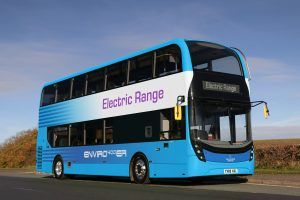Today sees the publication of the Scottish Government’s draft budget for next year. There are lots of competing pressures for the cash and money is tight. Will the measures we need to reduce climate emissions get much of a look in?
The Scottish Government has promised £1.8bn over the next five years to improve the energy efficiency of people’s homes and other buildings, and replace heating systems that use fossil fuels with zero-carbon alternatives. This includes converting one million homes and 50,000 non-domestic buildings by 2030.
A key measure of the green credentials of today’s budget will be how much money is put into this area next year. There will be four annual budgets between now and the next election, so that suggests each one should commit about £450m to this area. But the ‘Heat in Buildings’ strategy published last month has a whole chapter on ‘kickstarting’ this transition, which suggests the first year should have an even bigger injection of cash to get things started.
Cash for electric buses?
Another fine commitment from this government is that 50% of buses in Scotland should be running on something other than fossil fuels by 2023. Anyone who has been in Glasgow city centre recently will have noticed that every second bus is an electric one. In many cases this also meant securing or creating jobs at the Alexander Dennis bus plant in Falkirk.
This demonstrates how Scottish Government funding can help industry make a very rapid transition away from fossil fuels. Of course the spur of COP26 coming to town made a big difference but this change will be good for local air pollution and good for the climate (and created jobs).

There are also electric double-deckers running in Edinburgh and the UK’s only electric intercity coach service runs from Edinburgh to Dundee.
Replacing half the bus fleet is a huge task and it is definitely not going to happen by 2023 unless there is a pile of cash in this budget to help operators make the switch.
Yet a third fine commitment is to reduce the distance driven by car in Scotland by 20% by 2030. We are due to see a plan on how to do this very soon but it clearly requires big changes, and not just in cities but also in how people travel between cities. Surely this must mean more investment in railways, including to deliver on a promise to electrify much more of the network, and in buses.
Sadly there will probably also be further money committed to supporting the development of carbon capture, the fossil fuel industry’s favourite delaying tactic, every pound of which would be better spent on something that will really reduce emissions.
We will be scrutinising today’s budget to disentangle what is funded and what is not.
Many of the changes we need to make to move away from fossil fuels and eliminate climate emissions take investment, even if there will be savings in the long term from cheaper heating, less congestion and improved public health. The 2022-23 budget is the first concrete test of whether it is serious about all the fine words it said in the two weeks of COP26.
A version of this article appeared in The Scotsman on Thursday 9 December.
